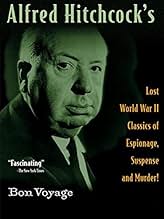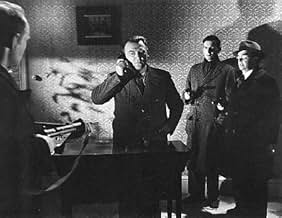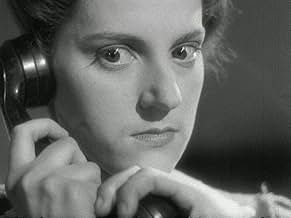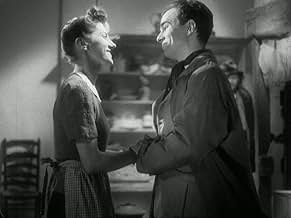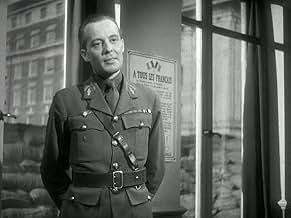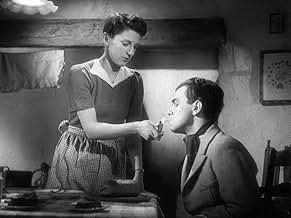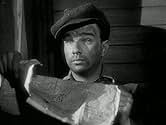"Bon Voyage" is a very short propaganda film about the French resistance which Hitchcock did for the war effort in 1944. It was met with disappointment and later shelved.
The only person billed is John Blythe; the rest are called "The Moliere Players" to protect them from the Nazis.
Blythe plays a Scottish RAF Sgt. John Dougall. He is being debriefed about his escape from France by French intelligence officers in London.
Dougall has escaped from a prisoner of war camp along with Stefan Godowski, who actually put the plan together. The two stick together until there is a Resistance-aided pick-up in France by plane. But only one can go, so they shoot dice for it. Dougall is the one to leave.
Upon meeting with the Intelligence agents, Dougall says that he hopes Godowski made it and wants to know what happened. As it turns out, although the agents wanted Dougall's story about how he was helped along the way, they already knew it.
Good story, but it was too low-key for what the government wanted from Hitchcock - a real rah-rah story and big ending concerning the Resistance.Instead, it showed ordinary people taking risks, which I found moving and effective.
An old woman I knew was in Vienna studying just before the war broke out and, for academic reasons, went looking for Heinrich Mann, who was hiding out in France. (And I just saw a film about this very thing, Varian's War). On the beach, she saw a man and woman playing ball on the beach, and the ball kept landing near her. They turned out to be members of the Resistance.
I believe she did find Mann in a bar somewhere, but what impressed her (and me) is that this couple told her that they would never quit their work until Nazism was defeated.
In the end, I think Hitchcock told the right story. It's not the big triumph but the work that people do leading up to it, sometimes small things, that win a war.

